*Disclaimer: This is gonna be a pretty long blog😖��Hello my beautiful girlies! (or boys, you're also welcome here)💛 This is your very own professional yapper Haliee🥰, bringing you the sauciest, juiciest knowledge of the world! Remember, we're not just hotties, we're hotties with cerebries🧠🧠🧠*most are my designs, those that aren't will have credit!Dictionary for those who don't know:- Yapper: A person who talks a lot/ has lots of things to say (me)😖- Cerebries: Yeah it's just a word play of Cerebum, you know, the brain?🧠
Don't wanna be here? Send us removal request.
Text
[W10: Last Night on TikTok: Like Puppets on a String]
“I may win on the roundabout Then I'll lose on the swings In or out, there is never a doubt Just who's pulling the strings” _Puppet on a string - Sandie Shaw_
Digital spaces sell us the dream of community, but let’s not kid ourselves—social media isn’t a utopia; it’s a battlefield. Conflict isn’t a bug; it’s a feature. Harassment? Profitable engagement. Moderation? A joke. Rules? They bend for the rich, and snap for the rest. Governance is a power play, and we’re just the pawns—outraged, entertained, and utterly powerless. Think you have control? That’s adorable. Now, keep dancing, puppet.

1. All of Us Are Dead: Spoiler - It Was Never About “Us”
_ A Clown Show in Three Acts
Ah, the never-ending TikTok ban saga—back again, like the reboot nobody asked for, or a toxic ex swearing they’ve changed.
The government “threatens” to shut it down (again), TikTok plays the helpless victim who screams about free speech, influencers clutch their ring lights in despair, and users? They’re treating this like the season finale of Twilight - a joke. High drama, no stakes. But here’s the real twist—it isn’t about protecting your data; it was never about protecting YOU.
If governments actually cared about your data, they wouldn’t be singling out TikTok while letting Meta, Google, and basically every other tech giant vacuum up your personal info like a Dyson on steroids (yet, no one’s banning them).

This is a geopolitical chess match—power-hungry governments using "security concerns" to flex “being caring to online users”, meanwhile, TikTok isn’t some underdog fighting for free speech—it’s a billion-dollar empire using this “ban” drama and chaos as free marketing with great publicity.
And influencers? Please. Their loyalty isn’t to TikTok—it’s to views. A fight for digital rights? More like a power struggle wrapped in a PR stunt—and we all fell for it.
Privacy? Security? Eghhh! (buzzing sound) It’s about control.

_Who Runs Social Media? Not You—THAT’S for Sure.
Social media was supposed to be the great equalizer, a space acting as a global town square where every voice mattered. But let’s stop kidding ourselves—users don’t run these platforms. Governments and corporations do.
📌 Governments want control—bans, regulations, data laws—but only when it benefits them. 📌 Tech CEOs pretend to enforce “community guidelines” on platforms, but their real priority? Ad revenue. 💰 Money over morals all day every day, so look alive people! (Suck it up, they mean) 📌 Users? We think we have power, but in reality, we’re just unpaid content creators feeding the machine. We’re the audience…until we become the product.

Social media “governance” is a rigged system where the rules change depending on who’s in power. The only consistent law? Engagement = money.
Online harassment is so baked into digital spaces that people don’t even bother fighting it.
As Haslop, O’Rourke and Southern (2021) point out, it’s become ‘the norm’—just another part of being online.
And that’s exactly how platforms like it. Less effort on moderation, more engagement from outrage. Profits go up, but user safety? Who cares?
2. The Chaotic Clout Chase of the Mediocre: Just How Desperate Are They?
_Clout-Chasing Carnage
When influencers thought TikTok was on its deathbed, they went FERAL, always in full survival mode.
I mean, let’s not pretend influencer drama is just “organic chaos.” It’s a game—one that’s strategically played.
Marwick and Caplan (2018) argue that harassment is often “coordinated and organized,” and guess what? So are these influencer meltdowns.
✅ Fake scandals. ✅ Over-the-top meltdowns. ✅ Conveniently timed “brand exposures.
Suddenly, everyone had a crisis to capitalize on.

_The Algorithm’s Freak Show
But let’s zoom out: this wasn’t just influencer nonsense. This was proof that social media “governance” is broken. While real issues like misinformation and privacy violations get ignored, the algorithm prioritizes drama, hysteria, and chaos—because it keeps us watching.
And the worst part? We enable it. We reward the most toxic behavior with views. We rage-comment, hate-watch, and click “just to see what’s happening.” Every time we think we’re above it, we prove we’re just as hooked as the rest.
Yes, that’s the harsh truth: While creators scramble to survive algorithm shifts, the real decision-makers (platform CEOs, investors, politicians) sit back and profit off our panic.

3. Doxing, Drama, and the Rules? Oh, You Thought There Were Rules?
_Rules for Thee, but Not for Me
Online harassment? Don’t act like it’s a one-way street. Yeah, it’s not just a ‘toxic masculinity’ thing like people love to claim.
In reality, men actually report experiencing it at slightly higher rates than women, with 43% of men and 38% of women saying they’ve faced some form of it (Atske 2021).
Power imbalances exist everywhere online, and women? Yeah, they can be just as vicious. Just look at the SSSniperWolf doxing mess—textbook proof that social media “governance” is a total joke.
🔪 Jacksfilms calls out lazy content. 📍 SSSniperWolf retaliates by literally posting his home address. 🚨 And YouTube? They hesitate. Drags its feet on punishing her, because… money.
If you did this? Instant ban. But when a high-earning creator does it?
The “investigation” suddenly takes weeks. The rules suddenly become “complicated.”

The message is clear: The bigger your platform, the fewer consequences you face.
🎭 Rules exist—but only for small creators.
This isn’t just favoritism, heck, the unfairness is the least on the worry list. This is purely dangerous. If “rules” can be bent for profit, what happens when real harm is done? Who decides which threats are taken seriously and which ones get buried under a PR statement?
Spoiler: Not you.
_“You’re a Monster.” Laughs. Try Looking in the Mirror.
This is where it stings: The real villain isn’t just governments, influencers, or tech CEOs. It’s us.
We reward bad behavior with clicks. We complain about toxicity but can’t look away. We outrageously demand accountability from regulation failures, yet never leave the platforms that exploit us.
We built this beast. Now, we’re stuck, waiting for the fate of being eaten alive.

Oh, You Thought You Could Win? Cute.
Social media should be a fair space where digital citizens have rights, where governance protects users, and where tech giants are held accountable. Instead?
📢 Protecting us? No! Governments use it to push their own agendas - They made the rules. 💰Keeping us safe? Is that even a question? Platforms profit off our addiction and outrage. 👀 Users get the illusion of control—but never the power - We just watch.
Social media isn’t failing us—it’s doing EXACTLY what it was built to do.

This was never a democracy. It’s a dictatorship run by algorithms—and we’re just the fuel keeping the fire burning.
Welcome to the Hunger Games, darling. And spoiler alert? We’re not the winners. We’re the game pieces.
You wanna stop being a game piece? Start questioning the rules. Stop feeding the machine just because it’s the ONLY game in town.

References:
Atske, S 2021, ‘The State of Online Harassment’, Pew Research Center, viewed 21 March 2025, .
Haslop, C, O’Rourke, F & Southern, R 2021, ‘#NoSnowflakes: The toleration of harassment and an emergent gender-related digital divide, in a UK student online culture’, Convergence: The International Journal of Research into New Media Technologies, vol. 27, no. 5, pp. 1418–1438.
Marwick, AE & Caplan, R 2018, ‘Drinking male tears: language, the manosphere, and networked harassment’, Feminist Media Studies, vol. 18, no. 4, pp. 543–559, viewed .
#DigitalDictatorship#OutrageEconomy#WhoMakesTheRules#IllusionOfControl#StopFeedingTheMachine#GamePiecesNotWinners#MDA20009
0 notes
Text
[W9: Simping Ain’t Free: Thanks for the Dono, Bro! – The Price of Buying Attention and Online Validation]
Gaming hasn’t just evolved—it’s a whole culture, an economy, and for some, even a full-time career. It’s an ecosystem where influence, money, and power shape who gets ahead.
Keogh (2020) explains, video game culture isn’t just an industry; it’s a structured economy, where everyone—from streamers to devs to fans—plays a role in reinforcing the system. And that system? It’s bigger than ever. From nostalgic arcade battles to Twitch streams and esports competitions with thousands watching, gaming has exploded into a global phenomenon.

1. Gaming: The Circus Where the Grind Never Ends and the Drama Always Trends 🎮✨
_Gamers, Creators, Cult Leaders
Players aren’t just players; they’re content creators, esports champions, and Discord community leaders. Whether you’re modding Skyrim, debating meta-strategies on Reddit, or dropping donations on YouTube Gaming, the lines between player, fan, and creator are blurrier than ever, with communities rising (and rioting) overnight.
In this world, gaming isn’t just a hobby—it’s a constantly evolving ecosystem where pixels meet passion, and the game never truly ends.
(AKA: Thanks for Robbing Me, You Emotional Capitalist!)

_From Players to Payers
Gaming used to mean grabbing a controller, button-mashing, trash-talking your friend, and screaming over a Mario Kart blue shell. Now? It’s paying $5.99 a month so a stranger might read your name out loud.
Twitch and YouTube Gaming make us feel like we’re part of a community. But are we? Or are we just funding someone else’s career in exchange for scraps of attention?

2. Insert Coin for Friendship: Pay to Win, Pay for...Clout?!
_Twitch or Treat: When Gaming Meets Performance Art
There’s a reason Twitch chat feels so addictive.
Live streaming isn’t just gaming anymore—it’s a full-blown performance.
YouTube lets gamers upload content, but Twitch turned gaming into live theater - taking things to the next level by making interaction part of the show (Taylor, 2018).
Viewers aren’t just watching; they’re actively feeding into the entertainment loop - they want the personal connection, hoping their name gets read out, their message gets noticed, or their dono gets a reaction. And that feeling? It’s EXACTLY what keeps people coming back.

_Parasocial Pyramids: Fans, Funds, and Fake Friendships
But let’s be real:
If you stop donating, does that “connection” even exist?
Just ask Sykkuno. When he moved from Twitch to YouTube, his fans LOST their minds. Some shamed him. Some even called it a betrayal—as if he owed them something just because they had watched and donated.
(Ugh, when delulu is NOT the solulu)

The illusion of connection keeps fans hooked (*cough, parasocial relationship, cough*), but make no mistake—it’s a pay-to-win system; the more you give, the higher you climb in this unspoken hierarchy. And that’s the issue:
These aren’t real friendships. They’re transactional.
…
You guys can hate Sykkuno all you want. But if you think your fave is getting all that cash, think again 👀. Check this out:

(Tachat Igityan 2022)
Why are y’all hating on the creator when the platform takes a huge cut anyway?
3. Lonely and Loaded: Your Faves Love You! (For a Fee) – The Business of Being a Cash Cow
_Superchats and Simp Taxes: Not a Fandom, Just a FinDom
💸 Superchats, subscriptions, dono goals—they’re not just ways to support a creator. They’re pay-to-play mechanics in the game of being noticed.
And here’s where it gets even messier:
✅ If you can’t afford to donate, you’re just another lurker. 💰 If you can, the more you give, the more visible you become. 🐋 The more you pay, the more you matter. (Might even get a personal thank-you, maybe even a DM)
Take Pokimane—when she tried to keep her dating life private, some of her fans acted like she owed them full transparency just because they had supported her for years.
Or look at Ludwig. One fan spent $10,000 on donations just to get noticed. That’s a semester of college—for one “Thanks for the dono, bro.”
At some point, it stops being entertainment and starts feeling like emotional gambling...

_Your Fave Needs Therapy—And So Do You: Healing Besties™
Fans aren’t just fans anymore. They’re unpaid labor—moderators, promoters, emotional support on demand.
Mods work for free, banning trolls, enforcing rules, and protecting a brand they don’t own.
Stans defend streamers online, dogpiling on critics as if it’s their personal responsibility.
Long-time viewers feel entitled to access, expecting personal attention after years of financial support.
And when that illusion breaks? It gets ugly.
💔A streamer takes a break? Fans feel abandoned. 😡 A streamer moves platforms? Fans call it betrayal. 🚫 A streamer sets boundaries? Suddenly, they’re “ungrateful” for their community.

And on the other side? Streamers can never log off.
⏳If they stop streaming, they lose subs. 🔇If they set boundaries, they get backlash. 📉If they ignore the constant demand for content, they risk becoming irrelevant.

Valkyrae learned this the HARD way. When she got caught in the RFLCT skincare controversy, her audience expected her to perform damage control for them—like she was personally responsible for their feelings about it.
The moment a streamer stops being the person fans want them to be, the love turns into hate.
And the worst part? Whether it’s fans demanding more or streamers feeling trapped, the platforms are the only ones truly winning. Twitch, YouTube, and Discord profit from the endless cycle of emotional labor—and they don’t have to lift a finger.

Fans aren’t just paying—they’re working for free. Just Cold. Hard. Digital Labors.
From Joystick to Wallet: GG, Your Money's Gone!
What started as a way to connect has turned into a system of emotional transactions.
As Chia et al. (2020) put it, platforms don’t just exist to serve users; they actively erase alternative models, forcing everyone to play by their rules.
Fans pay to be noticed. Streamers perform and hustle to survive. And the platforms? They profit from both. Twitch and YouTube operate within a platform capitalist model, where interactions are designed to maximize profit for the company, often at the expense of both fans and creators. That’s not broken—that’s by design.

And we call this a ‘community’?
Maybe it’s time we asked ourselves:
At this point, are we even gaming? Or just dollar signs funding someone else's grind, one dono at a time?

References:
Chia, A, Keogh, B, Leorke, D & Nicoll, B 2020, ‘Platformisation in game development’, Internet Policy Review, vol. 9, no. 4.
Keogh, B 2020, ‘The Melbourne Indie Game scenes: Value Regimes in Localized Game Development (Chapter 13)’, in P Ruffino (ed.), Independent Videogames: Cultures, Networks, Techniques and Politics, Taylor & Francis Group, Milton, pp. 209–222.
Tachat Igityan 2022, ‘How Much Do Twitch Streamers and YouTubers ACTUALLY Make from Donations?’, Hackernoon.com, viewed 20 March 2025, .
Taylor, TL 2018, ‘Broadcasting Ourselves’, Watch Me Play: Twitch and the Rise of Game Live Streaming, Princeton University Press, pp. 1–23.
0 notes
Text
[W8: RIP to the ‘Ugly’ Friend: How Instagram Killed Unfiltered Reality]
#The death of imperfection
Remember when filters were just dog ears and sparkles? Cute, harmless, dumb fun. Now? Filters are digital plastic surgery. One tap, and you’ve got AI-snatched cheekbones, glass skin, and a jawline that could cut glass. But filters didn’t just upgrade faces. They erased people.
1. The Vanishing Act: Where Did the ‘Ugly’ Friend Go?
_No more "Quirky Aesthetic"
Once upon a time, the ‘ugly’ friend was a pop culture staple. Think Janis Ian, the nerdy bestie in ‘80s rom-coms, or the quirky sidekick in early 2000s teen dramas. They weren’t conventionally attractive, but they had something else—charm, wit, and visibility.
Fast forward to 2025, and something strange has happened: the ‘ugly’ friend has disappeared.
Where is she? The one whose smile was a little too wide, whose skin didn’t glow like an AI-rendered goddess?
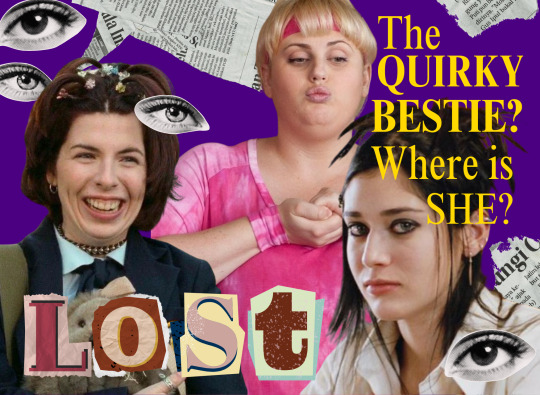
She’s gone.
...
Not from real life, obviously.
The ugly friend isn’t just missing from group pics—she’s missing from digital existence. And social media is to blame.

2. Lookism.exe: Error 404—Your Face Didn’t Load
_Algorithm saids NO! You’re out!
Boohoo, looks like you just got facetuned to death! Instagram filters aren’t just about enhancing beauty anymore. They’re about rewriting it, setting the standard so high that real faces start looking… unnatural.
A decade ago, people spent millions on surgery to fit beauty standards. Now? It’s FaceTune, auto-adjusting, and algorithmic perfection in real time.
Your nose? Shrunk. Your jawline? Sharpened. Your skin? Smooth as a marble countertop. Your individuality? Erased.

_Scan to Exit: Your Face Doesn’t Make the Cut
Filters aren’t just tweaking faces—they’re making them machine-readable. Instagram’s not neutral; it doesn’t care if you’re cute in real life - it cares if your face can be processed like a QR code.
Jill Walker Rettberg (2017) even spells it out for us: “Machine vision is about data, not about the visual or optical.” Scholar Carolyn L. Kane (2014), as cited by Rettberg, calls this the post-optical age—where vision isn’t about seeing anymore; it’s about sorting, ranking, and controlling.
Ever notice how the ‘Explore’ page rarely features unfiltered, barefaced selfies? That’s not a coincidence—that’s software literacy 101.
Your face? Just a collection of pixels and data points.
And if you don’t fit the algorithm’s mold?
Oops, you’re ugly. That’s why social media unfollowed you.
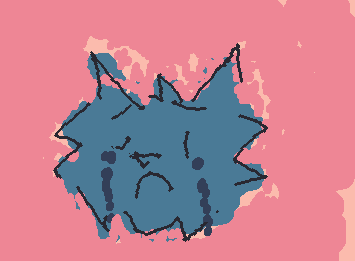
3. Pretty Privilege: No Filter? No Future
#Too Ugly To Go Viral
Lie to yourself all you want, but pretty privilege is real. Instagram’s algorithm isn’t fair, darling—it’s rigged. It favors engagement, which favors attractiveness, which favors a very specific, AI-approved aesthetic.
(Apparently, real faces are now a shocking novelty on social media.)

And guess what? It’s not enough to compete with Instagram’s hottest influencers—now, you’re in a deathmatch with your own face. The filtered, algorithm-approved version of you? That’s the new gold standard.
Reality doesn’t stand a chance.
The only way to reach today’s impossible beauty ideals is to edit yourself into existence. (Coy-Dibley 2016)
These filters don’t just smooth skin. They rebuild your faces.
They auto-correct “imperfections.” They whiten skin and enlarge eyes (a.k.a. Eurocentric beauty standards coded into your front camera). They erase “flaws” before you even see them.

And what happens when people don’t feel pretty enough to keep up?
📌 They filter themselves into perfection. 📌 Or they don’t post at all.
Unfiltered faces are disappearing from our feeds, and with them, the reality of what people actually look like.

4. I'd Rather Die Than Be Mid—Cropped & Forgotten
_Filtered & Friendless: If You’re Not Pretty, You Can’t Sit With Us! Now go AI generate yourself again
Back in the day, you could be the “awkward” best friend and still be visible. Now? You either fit the aesthetic, or you don’t get posted.
👀 Think about it:
When was the last time you saw an unfiltered group pic where not everyone looked “Instagram-ready”? When was the last time an “ugly” friend made it into the shot?
Mean Girls had Regina George at the center, but Gretchen and Karen were still in the frame. Today? Regina would be face-tuned to hell, and the rest of the squad would either match her energy or get cropped out.
Janis Ian? She wouldn’t even be tagged.
Ugly selfies are on the endangered species list.
“Gone were the days of using Snapchat to send ugly selfies.” _said Peres Martins (2017), as cited in Barker (2020)
Natural faces are getting cropped faster than an ex in a post-breakup photo dump.

This isn’t just paranoia—it’s a real shift in social dynamics. Friend groups are filtering themselves into perfection, and that means:
📌 Friend groups now match aesthetics. 📌 If you don’t fit, you don’t get tagged. 📌 If you don’t look the part, you don’t make the cut—literally.
It’s not just what we look like that’s changing—it’s who we associate with.
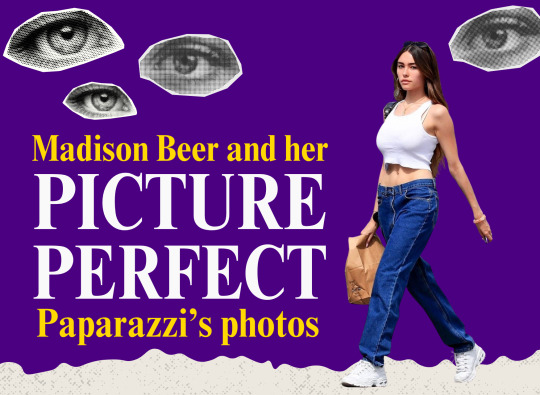
From Filter to Filler: FaceTune… IRL?!
_If the IT Girls Need Filters, We’re Doomed (Spoiler Alert: Yeah we’re doomed)
Bella Hadid got a nose job at 14 just to fit Western beauty standards—a choice she now regrets. Meanwhile, Kim Kardashian literally deepfakes her own face on Instagram.
If even the beauty standards don’t think their real faces are good enough… what hope is there for the rest of us?

Next time you swipe on a filter, ask yourself: Is this me, or just the algorithm’s version of me?
You don’t need a filter—you need a revolution. Are you ready to be seen?
💀 THE END. Or is it?
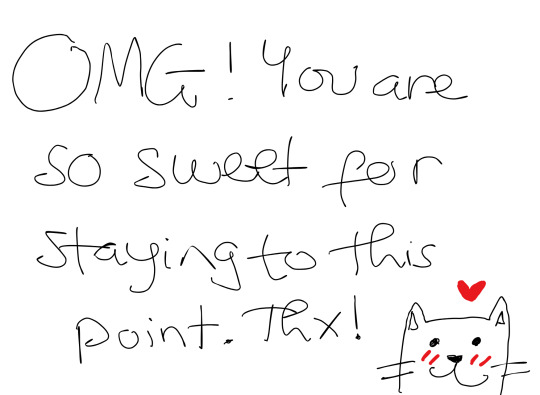
References:
Barker, J 2020, ‘Making-up on mobile: The pretty filters and ugly implications of snapchat’, Fashion, Style & Popular Culture, vol. 7, no. 2, pp. 207–221, viewed .
Coy-Dibley, I 2016, ‘“Digitized Dysmorphia” of the female body: the re/disfigurement of the image’, Palgrave Communications, vol. 2, no. 1, pp. 1–9, viewed .
Jill Walker Rettberg 2017, ‘Biometric Citizens: Adapting Our Selfies to Machine Vision’, in A Kuntsman (ed.), Selfie Citizenship, Palgrave Macmillan, pp. 89–96, viewed .
#FaceTunedToOblivion#NoFilterNoFuture#AlgorithmAesthetics#PrettyPrivilege#FilteredOut#DeathOfAuthenticity#MDA20009
1 note
·
View note
Text
[W7: Body, Brand, Betrayal – Your Body Is Expired, Please Update!]
We Are Slave—Oops, I Mean Made of Fakeness
(It’s Not Just Surgery—It’s a Show, and We’re All Cast in It)
We don’t just modify our bodies anymore—we modify our entire image. Filters sculpt our faces before surgeons do. Aesthetic templates tell us what’s “hot,” and what's not. If we don't adapt? We risk being erased. In an era where looking good is survival, body modification isn’t a choice—it’s an expectation.
1. The Illusion of Choice: Are We Changing for Ourselves or for the Algorithm?
_Plastic Surgery? How about Image Surgery?
Before we go further, let’s get one thing straight: body modification isn’t just about surgery.
Everything gets an update—including what it even means to modify ourselves.
It’s not just the knife. It’s filters, contour, gym grinds, fashion overalls, camera angles. Heck, even a swipe of mascara and call it a day counts. Opting out? Not an option.
But here’s the kicker: Body modification isn’t the villain—pressure is. Beauty trends move faster than iPhone updates, and if you can’t keep up? You’re out.

One moment, razor-sharp cheekbones reign supreme. The next? ‘Soft girl’ beauty takes over—but only if the softness is sculpted just right.
And let’s be real, the no-makeup makeup look doesn’t mean actually bare-faced. Your skin better be flawless—naturally or, ahem, with a little help. (No hate to my fellow plastic surgery besties - it’s your body, your choice! You're cool.)
So, who decides these trends? Because it sure as hell isn’t the people draining their bank accounts trying to keep up.
_JoJo, Have You Learned NOTHING? You’re Too Old! Also, Grow Up!
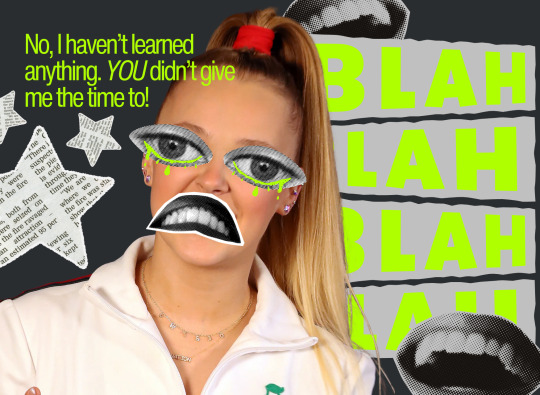
Remember that whole thing about stereotypes back in Week 4? (If you’ve read it, you’ll know what I mean! Just wanna make sure😏)
Yeah, well, plot twist: It’s not just about genders and sexuality anymore, because the new girl has arrived: The ‘acceptable’ way to be an adult.
And no one felt that pressure harder than JoJo Siwa.
She didn’t go under the knife (I think?), but let’s be real—she had to remodel herself to fit the part. If body modification is about survival, then this is its final form: Image modification.
Now don’t get me wrong, what she did is a mess, but let’s be real; she was handed a checklist:
🎀The bows? Juvenile. ✨The sparkles? Cringe.
The new script?
💋Smudge the eyeliner. 🔊Ditch the high pitch 🦵🏿Rip the fishnets. 💦Act provocatively. 🍻Chug booze on stage ✒️Flaunt tattoos like war medals. (they’re fake btw). 👶Talk about little kiddies. 🔞And, of course, sprinkle in some NSFW content.
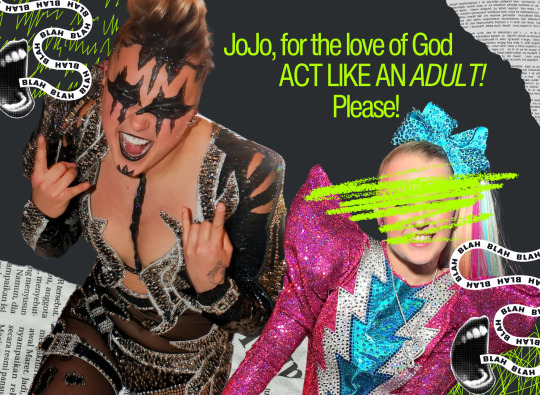
(not that she had time to figure it out before the world forced her hand—but hey, give the girl a break, she’s trying)
_Insert Coin to Continue: The Cost of Being ‘Seen’
Just like that, Jojo wasn’t a kid anymore—she was reprogrammed. And of course, the internet had opinions (as always).
“That’s what adulthood is supposed to look like, right?” -little JoJo thinks.
But did JoJo actually choose this transformation? Or was it a survival tactic?
And mate, I call this - “the trap”.
Body modification isn’t just about lips and hips anymore—it’s about shaping an entire image to fit a mold. And when the mold shifts, so must we.
JoJo didn’t just change—she had NO choice. The world would never let her stay the same. And fame? Fame doesn’t reward authenticity—it rewards adaptability.
New image or full-blown surgery? Doesn’t matter. JoJo only gets one real choice: Adapt or die.

2. I Can’t Believe It’s Not Me! A Guide to Looking ‘Real’ (By coughing the money up)
_When Your Existence Needs a Glow-Up
We’re told self-love is the answer—but if you feel ugly?
That’s on you.
Every flaw is your personal project to fix. No pressure, though! Just a quick filler here, a gym membership there, a thousand-dollar serum—boom! You’re “empowered” now.
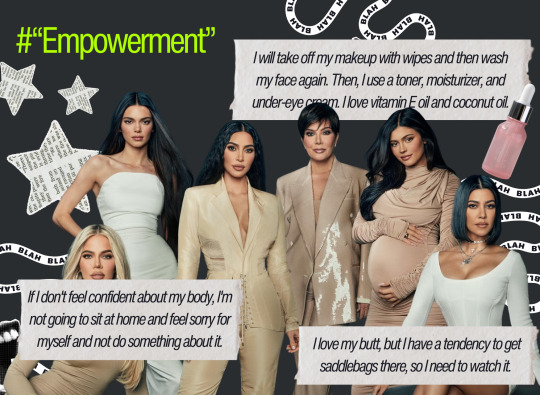
You CHOSE this yourself, right?
Yay! You “escaped” the male gaze…
...Only to be enslaved by capitalism.
Flawlessness has never been more expensive, yet we’re still expected to achieve it effortlessly. Self-love didn’t free us—it just gave us new ways to hate ourselves.
(Somehow, we still gotta look hot while falling apart.)

And social media? It thrives on this cycle. Algorithms don’t just reflect beauty standards—they enforce them. The more engagement a body type gets, the more the system amplifies it. Platforms don’t just show us what’s trending; they make sure it stays trending—until it’s time to sell us the next look.
Carah and Dobson (2016) explain that algorithms track which body types get the most engagement and push them even further, making beauty a numbers game where visibility equals value.
If you can’t do that? The algorithm swipes left.
_Congrats! You’re a Trend Now. Hope You Age Well
So, we’ve dragged modern "body modification"—a.k.a. "Image Surgery"—through the mud. But what about the OG version?
You know, the real knives-and-needles kind? The one that doesn’t just tweak your Instagram aesthetic but permanently reshapes you?
Once upon a time, the BBL was the must-have body upgrade. And guess who led the charge? The queen of body trends herself - Kim Kardashian.
She didn’t follow the trend—she was the trend. Hyper-curvy became the gold standard of desirability. But the moment slim and “natural” came back? She deflated faster than Wall Street in ‘29.
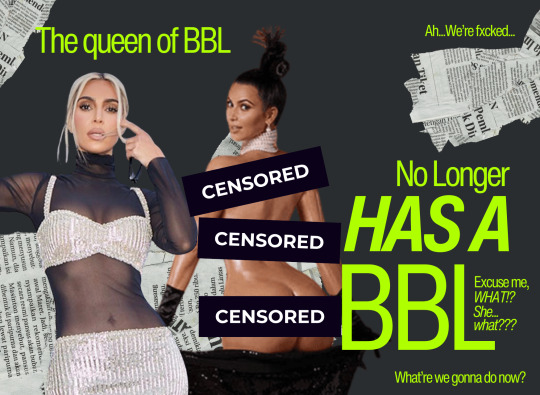
Kim didn’t just sell a body type—she sold an entire industry. And when she cashed out, the beauty economy followed.
As Dorfman et al. (2017) point out, Instagram isn’t just flexing glow-ups; it’s fueling a billion-dollar plastic surgery pipeline, turning young adults into prime targets.
_Your BBL Is Overdue!
The worst part?
↪️Kim can afford to hit ‘undo.’
😭The rest of us? We’re stuck with yesterday’s trend on bodies that today’s beauty standard has already abandoned.
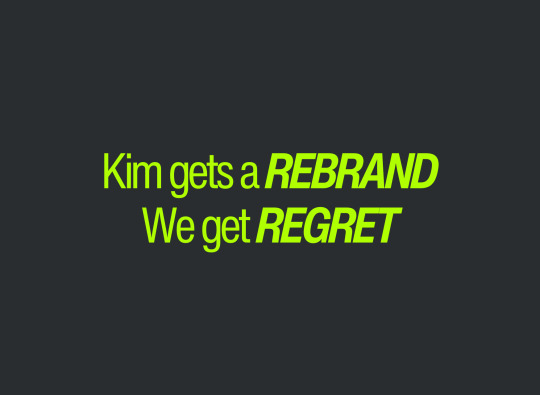
Today it’s BBLs, tomorrow it’s something else—but the system never changes.
Drenten, Gurrieri and Tyler (2019) make it clear—visibility is currency, and if you can’t cash in, you’re out. The algorithm doesn’t do nostalgia.
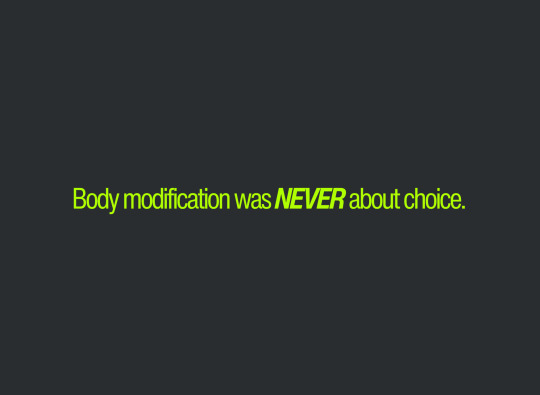
3. The Ultimate Scam: It Was Never About Bodies, It’s About CONTROL
_Body Modification: The New Cage of Beauty – If You Don’t Change, You’ll Disappear
Body modification isn’t just about aesthetics—it’s about proving something.
Prove you’re sexy, but not too sexy. Be strong, but still desirable. Improve yourself, but in an acceptable way.
It’s not about personal choice anymore; it’s about survival of the most “beautiful”. Change your body, or risk becoming invisible.
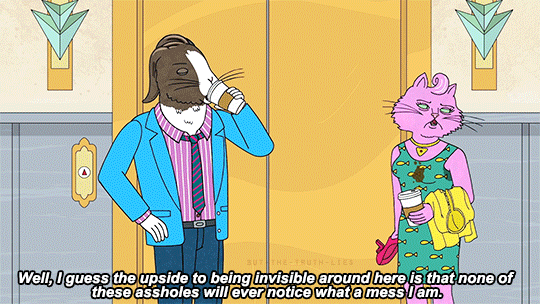
💪“Strong women don’t care what people think.” (Yes, we do. That’s why we get work done or you’ll just shame us into silence again.) 💅“Real women don’t chase validation.” (Unless it’s repackaged as empowerment—then go off, queen.) 😎“Confidence is power.” (But not too much confidence. Stay humble, darling.)
So here we are, stuck between two impossible choices:
Modify yourself? You’re a brainwashed sellout. Stay the same? You’re insecure and outdated.

SHOCKER: We’re Not Modifying Ourselves—We’re Being Modified
At this point, body modification isn’t just about looks. It’s about staying relevant.
Kim modified her body. JoJo modified her personality.
We don’t just edit our faces or tweak our figures anymore. We modify our entire identities—piece by piece—until we fit whatever the world expects of us.
Our bodies are now brands.
Our confidence? A product we have to buy.
...
And if we refuse to play the game?
We get erased. From relevance. From desirability. From opportunity.
So, tell me—who really benefits from all this?
Because if we’re all constantly reshaping ourselves to fit the next trend…
Who’s really in control?
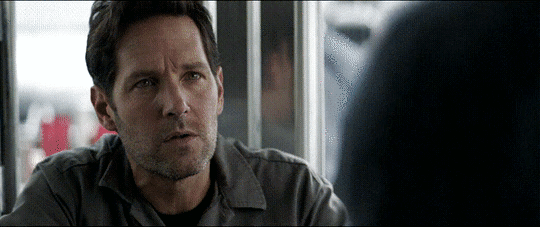
Your body is expired, please update?
Maybe it’s time we stop letting the system install the updates for us...
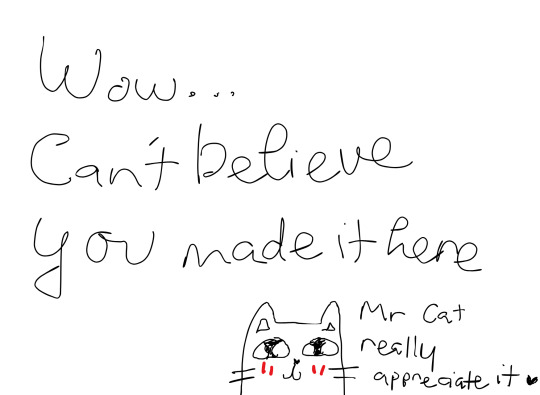
References:
Atske, S 2021, ‘The State of Online Harassment’, Pew Research Center, viewed 21 March 2025, .
Haslop, C, O’Rourke, F & Southern, R 2021, ‘#NoSnowflakes: The toleration of harassment and an emergent gender-related digital divide, in a UK student online culture’, Convergence: The International Journal of Research into New Media Technologies, vol. 27, no. 5, pp. 1418–1438.
Marwick, AE & Caplan, R 2018, ‘Drinking male tears: language, the manosphere, and networked harassment’, Feminist Media Studies, vol. 18, no. 4, pp. 543–559, viewed .
#BodyDysmorphia#ImageSurgery#AdaptOrDisappear#FilteredReality#YourBodyIsExpired#GlowUpOrGiveUp#MDA20009
0 notes
Text
[W6: Yet Another Exposé: Eco-Chic or a 'Force' of Habit?]
This isn’t about choosing sides—fast fashion isn’t completely bad, and slow fashion isn’t entirely perfect either. They both are playing the same game, just with different branding.

Slow fashion preaches sustainability like a holy gospel—buy this overpriced linen dress, and suddenly, you’re an eco-saint! Meanwhile, fast fashion peasants (a.k.a. broke people) are shamed for not caring enough. But let’s be real: slow fashion still wants you to spend, just with a smug little “ethical” label slapped on. And digital activism? Oh, it’s thriving—calling out brands, launching hashtag wars, and guilt-tripping consumers into “doing better.” So tell me, are we actually saving the planet—or just flexing our so-called ‘conscious consumer’ status for clout?
Congrats, you did it! (Well—if you can afford it.)

1. Dress to Impress: Another Day, Another Expensive Guilt Trip
_They got us, huh?
Slow fashion tells you what to buy, but never asks why you feel the need to buy in the first place. The message is always the same:
Buy slow fashion, and you'll save the planet! Buy slow fashion, and you'll save the workers!
Too bad, most people don’t actually know how fast fashion destroys the environment, or why slow fashion is supposed to be better. We just nod along, guilt-tripped into thinking a $200 linen dress makes us ethically superior. Sure, we hear the usual spiel:
"Fast fashion pollutes! Slow fashion lasts longer!"
But how much longer, really? Five years? Ten? Long enough to justify the price tag?

_Luxury Guilt-Tripping: Now in Soft Beige!
And what about the workers—are they truly getting better conditions, or is that just another marketing line?
DW Planet A (2021) highlights how many so-called "ethical" brands still underpay garment workers and rely on exploitative labor, just with better PR.
The narrative is simple: Fast fashion is the villain, slow fashion is the hero, and if you care about the environment, you’ll cough up three months’ rent for a "sustainable" linen dress.
...I hate to break it to you, but consumption is still consumption. No matter how many recycled buzzwords you slap on it, the industry still wants you to spend, spend, spend.

_Sustainability? More Like Expensive Self-Deception
If sustainability was the goal, we’d be buying less, not just different.
But no—rather than tackling our addiction to consumption, slow fashion just slaps on an eco-friendly label and a higher price tag, as no matter how much you try to brainwash yourself, slow fashion still operates within the same capitalist system as fast fashion.
Suddenly, shopping isn’t just a mindless habit—it’s a moral obligation (Brewer 2019).

Are we actually changing, or just paying more to feel better about staying the same?
2. Excuse Me? How Much for a Clean Conscience?
_Thrifting Ain’t a Cheat Code, Ya Know?
Ethical fashion isn’t about saving the planet; it’s about saving your self-image and flexing your moral superiority. Let’s be real—a $300 linen dress doesn’t make you an environmentalist. That’s not “activism”; that’s just bougie guilt relief. But don’t worry, you’re not the bad guy! You’re just “someone who can afford to feel superior while still shopping like everyone else!” It’s not a revolution—it’s… what’s it called again? Oh! Right. Same old capitalism, thrifted blazer.
And cue the self-righteous chorus:
“Just thrift more!” “Stop buying fast fashion!”
Aww, because secondhand stores are just overflowing with size-inclusive, work-appropriate, affordable, brand-new-looking clothes for everyone, RIGHT?
News flash: thrifting isn’t the magical solution y’all think it is.
Prices are climbing, resellers are hoarding trendy pieces, and let’s not even start on the hygiene gamble.
But sure, let’s keep shaming broke people for “not caring enough.”

Oh, okay. Too bad, so sad.
Sorry that my financial situation hurts your feelings! Guess I should dig through overpriced, picked-over thrift racks hoping to find something that fits? Or drop my rent money on a dress that still exploits workers, more aesthetically? Got it.
And if slow fashion is so “ethical,” why does it still gatekeep sustainability behind a paywall?
Chi et al. (2021) further confirm that slow fashion appeals mainly to wealthier consumers, reinforcing that sustainability is a privilege, not an accessible choice.
The message is clear: if you can’t afford to “shop responsibly,” you must not care enough.
But here’s the real tea—most people don’t choose fast fashion, they’re funneled into it. Meanwhile, slow fashion brands slap a sustainability sticker on a $400 dress and pretend they’ve solved overconsumption. If you’re poor, YOU'RE the problem.
At the end of the day, it’s not about buying better—it’s about buying less.

But no brand wants to sell you that message now, do they?
3. If I'm the Villain, Then You're Just a Hypocrite!
_Broke = Villain, Rich = Virtuous?
Fast fashion consumers get dragged through the mud, while billion-dollar corporations waltz away scot-free.
Oh how we love a good scapegoat. And in this case? It’s the broke college student scraping by, buying a $10 Shein top because, SHOCKER, that’s all they could afford. Meanwhile, slow fashion brands are out here polishing their halos, prancing around happily with their
“We’re so ethical” banners for “doing better”
— conveniently ignoring the fact that they’re still underpaying garment workers, sourcing materials from god-knows-where, and engaging in the same exploitative labor practices they claim to fight against. But hey, at least their website has soft beige aesthetics and an “Eco-Friendly” badge, right? So chic. So ethical.

_You're Just B-R-O-K-E!
Just tell me, if a brand calls itself ethical but still refuses to pay fair wages, is it actually ethical? Or just better at PR?
Because, half these brands aren’t selling sustainability—they’re selling the illusion of sustainability at a luxury markup. And the best part? The guilt-tripping is free! Oh, you can’t afford to drop $400 on a linen jumpsuit?
Sounds like a YOU problem, not a ME problem!

_Gaslight, Gatekeep, Greenwash
And that’s "the angle". The whole conversation shifts blame onto consumers, guilt-tripping them into believing they are the problem while the corporations doing the real damage get off with a performative Earth Day Instagram post and a “We Care” marketing campaign. Sustainability shouldn’t be a privilege, but slow fashion brands sure love keeping it that way.

Plot Twist (Not Really): Same Game, Same Winners—The Rich Make the Rules
Slow fashion isn’t about ethics—it’s about who gets to play the hero and who gets shamed for being poor. Who actually benefits when expensive brands tell you fast fashion is evil?
Spoiler alert: They do.

They get to sell you virtue, all while keeping that virtue just out of reach for the average person. Because let’s be real—the same people who never had to worry about affording clothes in the first place are the ones dictating what “responsible” fashion looks like. Convenient, huh? At the end of the day, there’s no hero here—just a bunch of privileged people moving the goalposts and gatekeeping morality with a price tag. So before you drop half your paycheck on that “conscious collection”, ask yourself: Are you really making a difference, or just buying into another illusion?

Funny how the ones selling you ‘the solution’ are the same ones who created the problem in the first place, huh?

References:
Brewer, MK 2019, ‘Slow Fashion in a Fast Fashion World: Promoting Sustainability and Responsibility’, Laws, vol. 8, no. 4, p. 24.
Chi, T, Gerard, J, Yu, Y & Wang, Y 2021, ‘A study of U.S. consumers’ intention to purchase slow fashion apparel: understanding the key determinants’, International Journal of Fashion Design, Technology and Education, vol. 14, no. 1, pp. 101–112.
DW Planet A 2021, ‘If you think fast fashion is bad, check out SHEIN’, www.youtube.com, viewed .
#SustainabilityForSale#SlowFashionMyth#ConsumerGuiltTrap#EthicalWashing#The Art of Buying Your Way to Moral Superiority#Saving the Planet or Just Buying the Aesthetic?#MDA20009
0 notes
Text
[W5: I called dibs! Breaking news: Hashtag Activism - A tale of two tales]
Guys, I think we might be club snubbed...
Ah the internet... it's not just where we scroll—it’s where we exist. From calling out injustice to fueling trends, our digital lives don’t just reflect reality—they shape it. But being online isn’t enough. Digital citizenship means knowing the game: our rights, responsibilities, and the fact that platforms don’t just connect us—they control the conversation. They shape political engagement, amplify movements, and turn hashtags into rallying cries.
The question is: We’re louder than ever—but are we really being heard? 👻
Or are we just playing by the algorithm’s rules?😱
1. CTRL + Hustle: Clicktivism in Action?
_Hashtags: Raising Voices or Just Raising Eyebrows?
Hashtag activism is the internet’s megaphone, rallying millions with a single click. Movements like #BlackLivesMatter and #MeToo have driven protests, influenced policies, and reshaped cultural conversations.
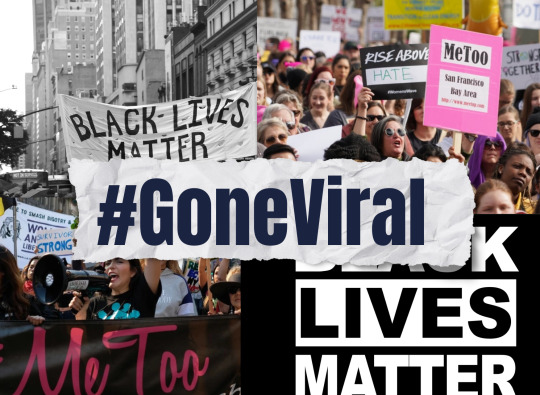
But but but but! Hear me out.
_Trending Today, Forgotten Tomorrow: Who’s Playing Who?
A viral moment isn’t always a revolution—it can just be digital theatre wrapped in pixels. Sure, social media can raise awareness at lightning speed, but keeping that momentum? That’s where things get messy.
As Cooper (2023) cites Muslic (2017): "Social media is highly efficient at raising awareness as well as funds. However, the Internet is also incredibly fast-paced, so support for campaigns is usually short-lived.”
Sound familiar? One minute, your feed is flooded with activism, and the next, it’s back to cat memes and influencer drama. The algorithm moves on, and—let’s be real—so do most people.
_Click, Clout and Collapsed: The Internet’s 30-Minute Revolution
As you might have guessed, this does not go according to plan…
Before TikTok made activism trendy, there was Kony 2012—the campaign that turned a Ugandan warlord into the internet’s ultimate villain. It was the viral moment of 2012, with celebrities, influencers, and even your high school history teacher jumping on the bandwagon.
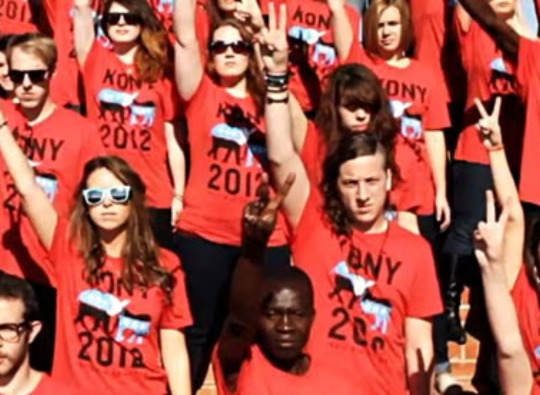
(Harris 2012)

(Hodgson 2012)
The result?
🚀 100 million views in six days.
The outcome?
🚫Not Kony’s arrest
…just a collective case of slacktivism burnout and the campaign’s leader having a very public meltdown. It was the ultimate reality check: the internet can make someone famous overnight, but justice? That’s a different story.
...
And nope, in case you were wondering—Joseph Kony was never arrested (#That Never Happened) Despite becoming the world’s most wanted man (at least online), he slipped through the cracks. The Ugandan military gave up the search in 2017, the U.S. packed its bags, and Kony? Well, he’s still out there, somewhere…He might have faded from our feeds, but reality? Not so much.

_Algorithm decides!
But not all movements get the same red carpet. Kony 2012 was pushed; #FreePalestine was punished. Activists face shadowbans, deletions, and content blocks. Turns out, platforms don’t just boost activism—they filter it. If the algorithm isn’t on your side… does your movement even stand a chance? But this wasn’t just a #FreePalestine problem—it was a system problem.
And someone saw this coming.
_The Internet’s Unbothered Prophet
Meet Zeynep Tufekci - the internet’s only sane person. She didn’t just call it—she practically had a crystal ball.
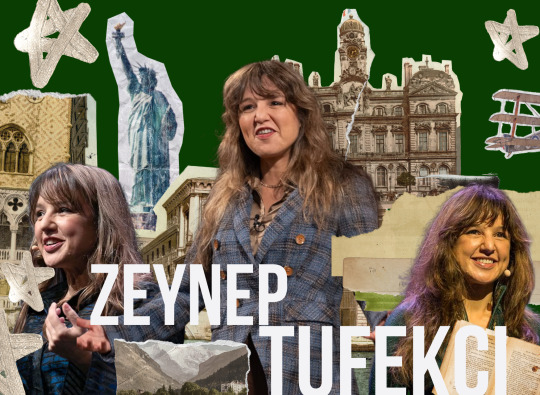
Tufekci tried to warn us, but did we listen? Nope. (We should have) She wasn’t just skeptical—she saw the design flaw in digital activism. Platforms don’t just amplify voices; they engineer movements for engagement. The system thrives on outrage, not outcomes. And guess what? The algorithm always wins.

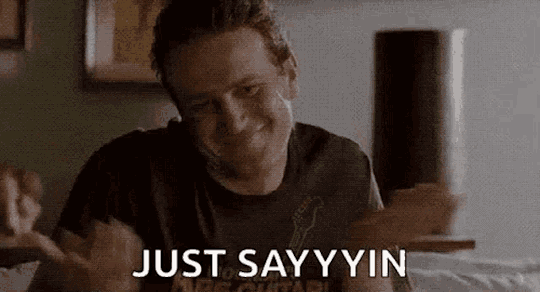
Virality isn’t victory. A video trends, we tear up, smash the share button, and think we’re dismantling war crimes from our dorm rooms.
…Can we do better?

2. #PaveTheWay: From Tweets to Streets
_Viral with a Vengeance: Finally, We Grew a Backbone
Not all hashtag activism is performative noise. Some movements bridge the gap between digital and real-world action. Enter #NiUnaMenos.
Born in Argentina in 2015, #NiUnaMenos (“Not One Less”) started as a viral feminist movement against gender-based violence. It evolved into real-world protests, pushed for legal reforms, and led to stronger anti-gender violence laws.
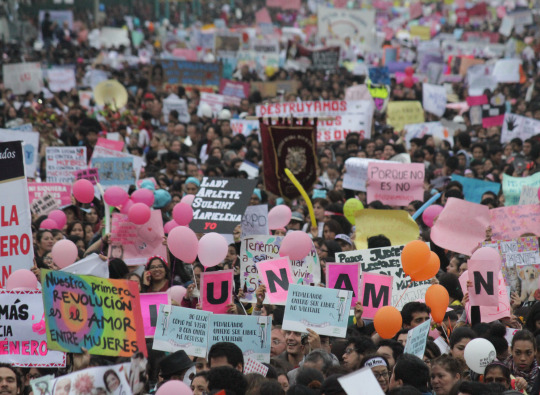
Similarly, the #GeorgeFloyd protests also kept the fire going - it turned a viral video into a global uprising, forcing a reckoning on police brutality and racial justice—proving that hashtag activism CAN work, and in fact, it’s a powerful tool…
...Just make sure the internet doesn’t move on before the “real-life” work is done.
Final Thoughts: Beyond the Scrolling, Screaming and Sharing
A tweet can trend. A movement can shake things up. But real change? That takes more than 280 characters. The fight doesn’t stop when the algorithm moves on—The question is, will you?

References:
Basu, M 2012, ‘As criticism surfaces, “KONY 2012” gains momentum faster than Susan Boyle’, CNN, viewed 15 February 2025, .
Cooper, K 2023, The Effectiveness of Online Activism: Who it is Effective For, What Issues it is Effective For, and What Time Period it is Effective For, Thesis, University at Albany, State University of New York, p. 17, viewed .
Harris, P 2012, ‘Kony 2012 organisers plan massive day of action across US cities’, The Guardian, viewed .
Hodgson, S 2012, ‘“Kony 2012” Video Illustrates the Power of Simplicity’, The New York Times, viewed .
#ActivismOrAesthetic#FilteredRevolution#ScrollToSave?#ViralResistance#ScrollStopImpact#Click to change the world?#Are we being ghosted?#Played by the algorithm?#MDA20009
0 notes
Text
[W4: Lights, Cameras, Action, and…Drama? Behind the Scenes of the “Fake” Real Genre]
Reality TV isn’t going anywhere, but it might need to start being more “real” than just reality.
Reality TV claims it’s “real,” but let’s be honest—it’s more staged than a PR apology. Every tear, twist, and tantrum is edited for max drama. But with social media, fans aren’t just watching—they’re reacting, memeing, and fueling the chaos in real time. That “liveness”? It’s what keeps us hooked.
But I'm gonna hold your hand when I say this: Let’s be real—how “real” is too real?
(Yes, yes, I know I said ‘real’ three times…let’s just roll with it😏)

(Meme via Quickmeme)
1. Reality Check Please!
_When inclusivity IS the stereotype
Since its 2009 debut, RuPaul’s Drag Race has turned drag queens into global superstars while shedding light on LGBTQ+ struggles. However, its early seasons—whether intentionally or not—often reinforced stereotypes like the ‘sassy gay,’ ‘catty queen,’ or ‘tragic queer,’ sparking criticism along the way.
Still, RPDR has reshaped reality TV, evolving to include trans, nonbinary, and AFAB (assigned female at birth) queens, showcasing a broader range of drag artistry.

_“Tokenism” vs. True Representation: Hello, my name is Gay, and I’d describe my personality as “the Gay dude”.
Reality TV loves to pat itself on the back for being a safe space for queer self-expression—like a glitter-covered utopia where everyone can be their most “authentic” selves; but let’s be real, not all queer identities get the same VIP access. Some fit the industry’s marketable mold, while others are conveniently left on the cutting room floor (Lovelock 2019).
LGBTQ+ representation has come a long way, but tokenism is still alive and kicking. Too often, queer contestants are cast just to tick the diversity box, only to be reduced to a stereotype or drama magnet. Even RuPaul’s Drag Race, for all its glitter and glory, has been called out for favoring polished, marketable queens while sidelining alternative drags, kings, and nonbinary performers. So while reality TV claims to be all about “realness,” it still plays favorites when it comes to who gets the spotlight.

2. The Dark Side of Reality TV
_Oh the things they do for drama...
Behind the drama that reality TV thrives on lies a troubling truth: contestants often face significant ethical challenges, from mental health struggles to edit manipulation. High-pressure environments, little mental health support, and restrictive contracts leave contestants at the mercy of producers.

And why? Because at the end of the day, reality TV isn’t about truth—it’s about entertainment. In fact, reality TV has strayed far from its documentary-style roots and is now all about
"camera-ready people (over)performing themselves in situations brimming with emotive drama, itself guaranteed by semi-scripted formats, on-set contrivances, and post-production editing". (Kavka 2018)
Translation? That jaw-dropping fight? Probably staged. That shocking confession? Heavily edited. Reality TV doesn’t just capture drama—it manufactures it.
_“Villains” are destined to be...hated?
Reality TV sells itself as unscripted, but much of it is staged by producers and editors (Strauss 2018). They manufacture drama through casting, editing, and scripted conflicts; even the contestant selection follows a formula! I mean, every show needs a ‘villain’ to keep audiences hooked, right?
Though entertaining, villain edits have real-life consequences. Once a contestant is labeled the ‘villain,’ social media pounces—hate comments, memes, and nonstop scrutiny. What starts as TV drama quickly turns into online harassment, sometimes wrecking careers and mental health.
Sophie Gradon, a Love Island contestant from 2016, took her own life after facing relentless online bullying and harassment. Just a year later, Mike Thalassitis, another former contestant, tragically did the same.

_The Fantasy Lover
If reality TV creates villains, it also creates idols. Fans binge Love Is Blind or The Bachelor, feeling personally invested in contestants’ love lives. Social media only intensifies this, fueling DMs, comment wars, and overanalysis. But here’s the twist—contestants don’t even know their biggest fans exist. It’s a full-blown parasocial relationship, and that’s reality TV for you.

(Meme via Quickmeme)
_The show must go on!
For those who survive the chaos? Welcome to the influencer life. Love them or hate them, ex-contestants leave with brand deals, podcasts, and TikTok fame. Reality TV is just the launchpad—social media is where the real game begins!
Psst! Come a little closer! I want to tell you something…

(Meme via Meme Creator)
Maybe the real drama isn’t on-screen—it’s us. We know it’s staged, but we still eat it up, meme it, and pick our heroes and villains.

(Meme via imgflip) Either way, the cameras keep rolling—and we keep watching.

References:
Kavka, M 2018, ‘Reality TV: its contents and discontents’, Critical Quarterly, vol. 60, no. 4, pp. 5–18.
Lovelock, M 2019, ‘Introduction’, Reality TV and Queer Identities: Sexuality, Authenticity, Celebrity, Palgrave Macmillan, pp. 1–32, viewed .
Strauss, PS 2018, Scripted Stereotypes In Reality TV, Thesis, Pace University, p. 1, viewed .
#RealityRevealed#DramaOnDemand#NotSoRealLife#DramaInTheMaking#NoCrumbsLeft#RealityTVExposed#MDA20009
1 note
·
View note
Text
[W3: Remember Tumblr? We all are missing this digital icon!]
Are you keeping up? Captain Tumblr, its sailors, and their ships hit different—stirring the waters of digital discourse like no other.
Public spheres—the mature, calm, and ever-so-demure older sister—create spaces for people to connect, debate, and speak their minds, all in the name of open communication, critical thinking, and a dash of democracy. Then there’s the chaotic younger sibling, micro-public spheres—modern, chic, and armed with its own charm: platform vernaculars. But despite their differences, both share the same fate: surveillance and algorithmic bias creeping in, twisting conversations, distorting discourse, and trapping us in echo chambers.
But what if there's one place on earth that mastered this messy digital chaos?🤯🤯🤯

1. Tumblr's got a point, Tumblr’s an icon, Tumblr's a legend and Tumblr's the moment
_#Nobody’s_Cool_in_Middle_School
Tumblr became the ultimate hangout for teens craving a more authentic and “cool” space, especially as Facebook started feeling more like a place for parents and older generations. As one 2014 post summed it up: “I chose Tumblr because I’m not attractive enough for YouTube, not popular enough for Twitter, and Facebook is dumb.” (Reeve 2016) It wasn’t just memes and reblogs—it was a hub for self-expression, exploration, activism, and identity exploration, especially for LGBTQ+ youth - which for teens, that’s all they could have asked for.
"Charlie: (19, trans male, queer, urban) Knowing there were other people who were this sexuality or they were also transgender, that was a really big thing for me to be able to see—that there were other people that were also figuring themselves out sexuality wise. That was a nice thing for 15-year-old me to find out about." (Byron et al. 2019)

*this is a joke, I still love you Facebook😉
2. Shipping Cultures in Tumblr: The good, the bad, and the ugly
_What's the hype?
Remember when we spent hours curating our perfect Tumblr aesthetic, writing 2,000-word fan theories, and waging war over OTPs? Yeah, we were all unhinged—but in the best way.

Shipping culture was Tumblr’s bread and butter, where fans obsessed over their favorite pairings—canon or not. With customizable blogs, anonymity, and a solid tagging system, users shared fanfics, art, and deep-dive analysis. Same-sex ships especially flourished, sparking conversations about queer representation and visibility, which earned Tumblr the nickname: "The queerest place on the internet" (Hannell 2023).
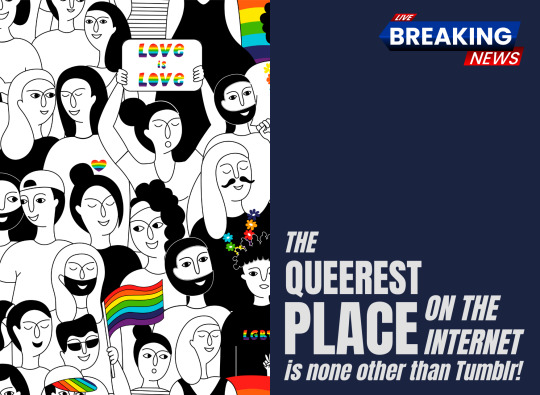
However, Tumblr wasn’t without drama (Oh yes she’s a drama queen indeed!), as intense "shipping wars" occasionally turned toxic, highlighting both the passion and complexities of this vibrant online culture. Well, let’s just say, it’s not Tumblr without posts saying why Drarry is better than Dramione, or “shippers” at each other’s throats arguing about TomStar and Starco.


_Types of ships
Canon Ships: Pairings that are officially confirmed (e.g. Hiccup and Astrid from How To Train Your Dragon).
Non-Canon Ships: Relationships imagined by fans that are not confirmed or even hinted at (e.g., Johnlock in Sherlock Holmes).
Crack Ships: Wild, humorous pairings with little to no narrative basis (e.g. Twilight Sparkle in My Little Pony: Friendship is Magic and Mordecai from Regular Show).

_Canon or Not Canon: When your OTP becomes NOTP.
For fans, a canon ship feels like validation, fueling their imagination with more fanfic and art. But non-canon ships thrive too, giving creative freedom to explore “what if” scenarios—especially when the story’s relationships fall flat. Fans love finding subtext, chemistry, or representation where creators didn’t.
At the end of the day, canon status doesn’t make or break a ship’s importance. Shipping is all about how fans connect with the pairing, the joy it brings, and the communities and stories they build around it. I mean come on, we all bond some way or another when talking about a random 3000 words fanfic of Johnlock, right?
_Case study: The Johnlock conspiracy (TJLC) - We are all detectives now!

The rise of the Sherlock fandom and the "Johnlock" ship (Sherlock Holmes/John Watson) is Tumblr's most iconic shipping case. Fans were drawn to the chemistry between Benedict Cumberbatch and Martin Freeman, interpreting romantic subtext, even picking up on subtle clues (i.e. motifs, body language) that was never even confirmed in the show. However, not everyone was having it, with some going as far as calling it queerbaiting—teasing a same-sex relationship without actually following through.
And so it began, Tumblr turned into the hub for fan art, fanfic, and deep-dive theories, with TJLC fueling arguments on whether this is a hidden slow-burn romance arc or simply outrageous. The reblog culture amplified discussions and beliefs, turning Johnlock into a cultural phenomenon. While this showcased Tumblr’s influence, it also led to clashes with showrunners and fandom toxicity when Johnlock didn’t become canon, with Moffat calling queerbaiting claims “ridiculous” and Gatiss joking, “Oh yes, the secret episode is hidden in my cupboard. I'll send it to you if you like!”
Final thoughts:
Tumblr wasn’t just a website; it was a cultural shift. From fan theories to self discovery, it shaped how we interact with the media. So maybe we don’t use it like we used to—but its legacy? #Still unmatched.

References:
Byron, P, Robards, B, Hanckel, B, Vivienne, S & Churchill, B 2019, ‘“Hey, I’m Having These Experiences”: Tumblr Use and Young People’s Queer (Dis)connections’, International Journal of Communication, vol. 13, pp. 2239–2259, viewed <https://ijoc.org/index.php/ijoc/article/view/9677>.
Hannell, B 2023, ‘The queerest place on the internet?: Queer belonging on Tumblr’, Sociological Studies Research, viewed <https://socstudiesresearch.com/2023/02/03/the-queerest-place-on-the-internet-queer-belonging-on-tumblr/>.
Reeve, E 2016, ‘The Secret Lives of Tumblr Teens’, The New Republic, viewed <https://newrepublic.com/article/129002/secret-lives-tumblr-teens>.
#Tumblr_for_the_Memories#InTheTumblrLane#LostInTheTumblrVerse#JohnLock_isn’t_real!?#TumblrVibes#queerhub#MDA20009
0 notes